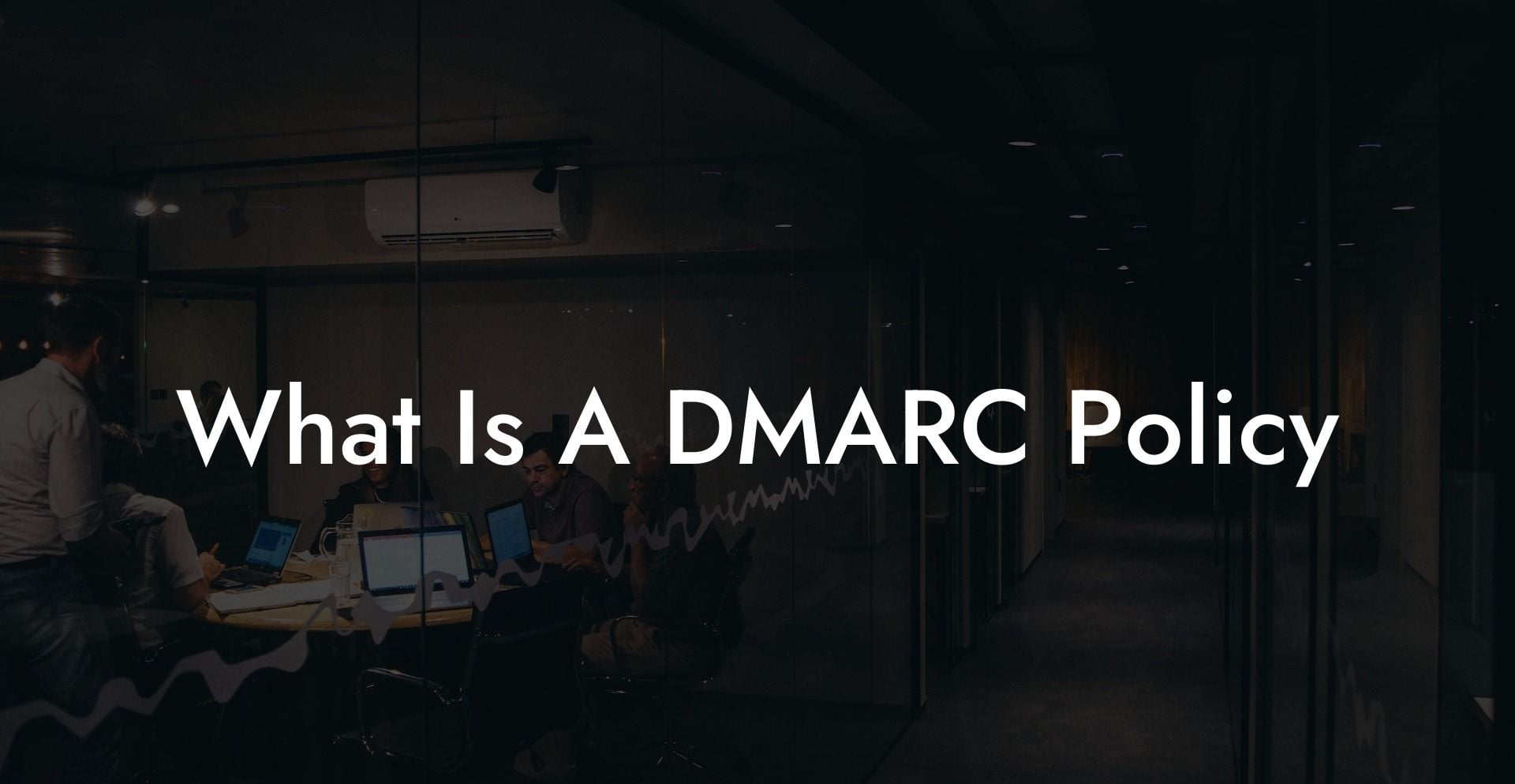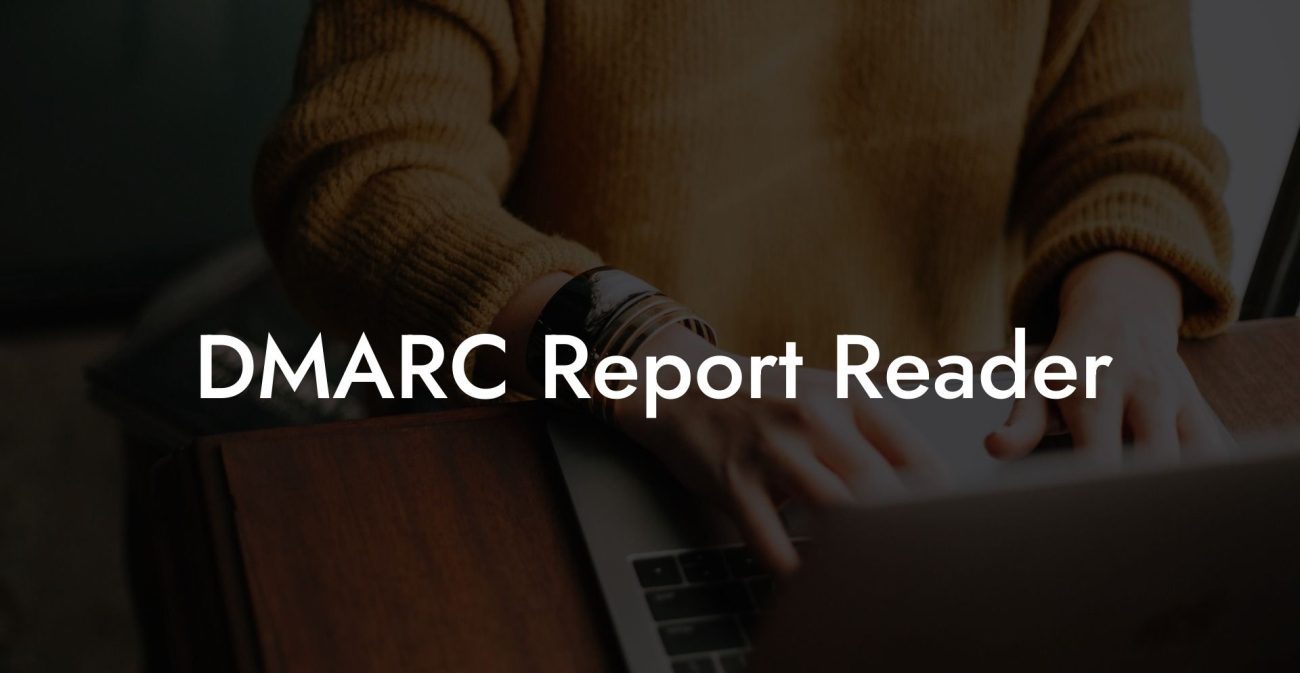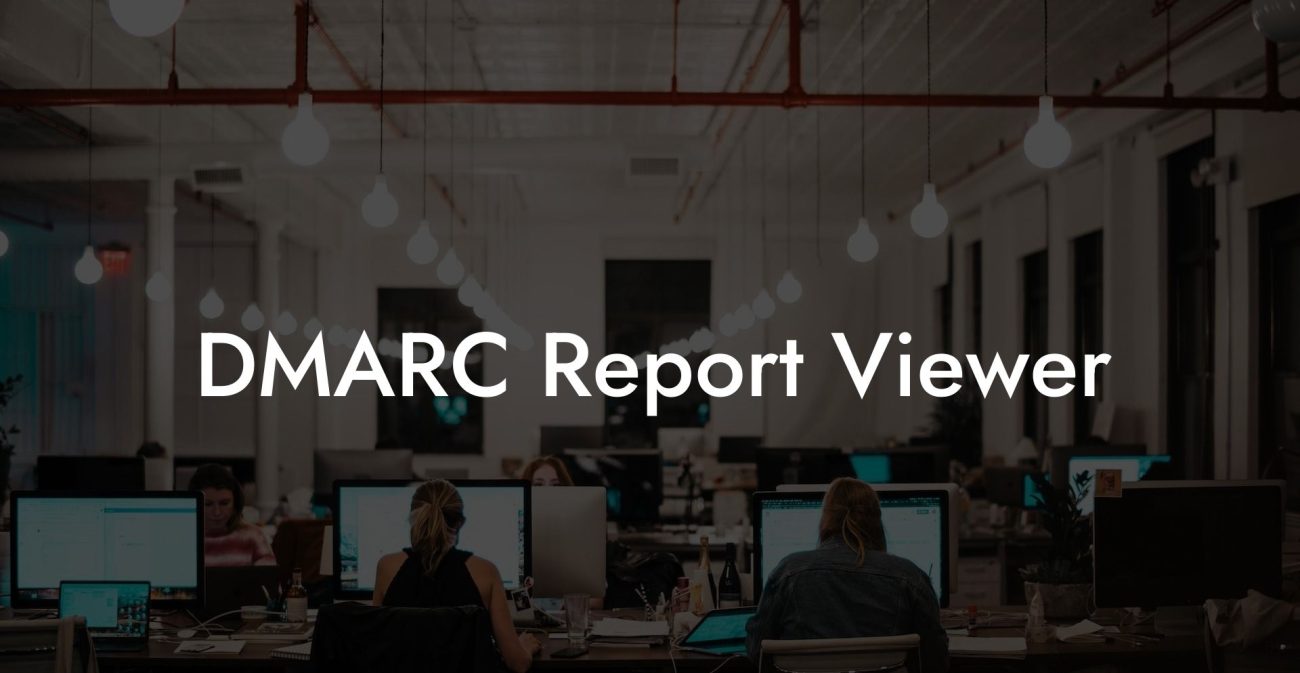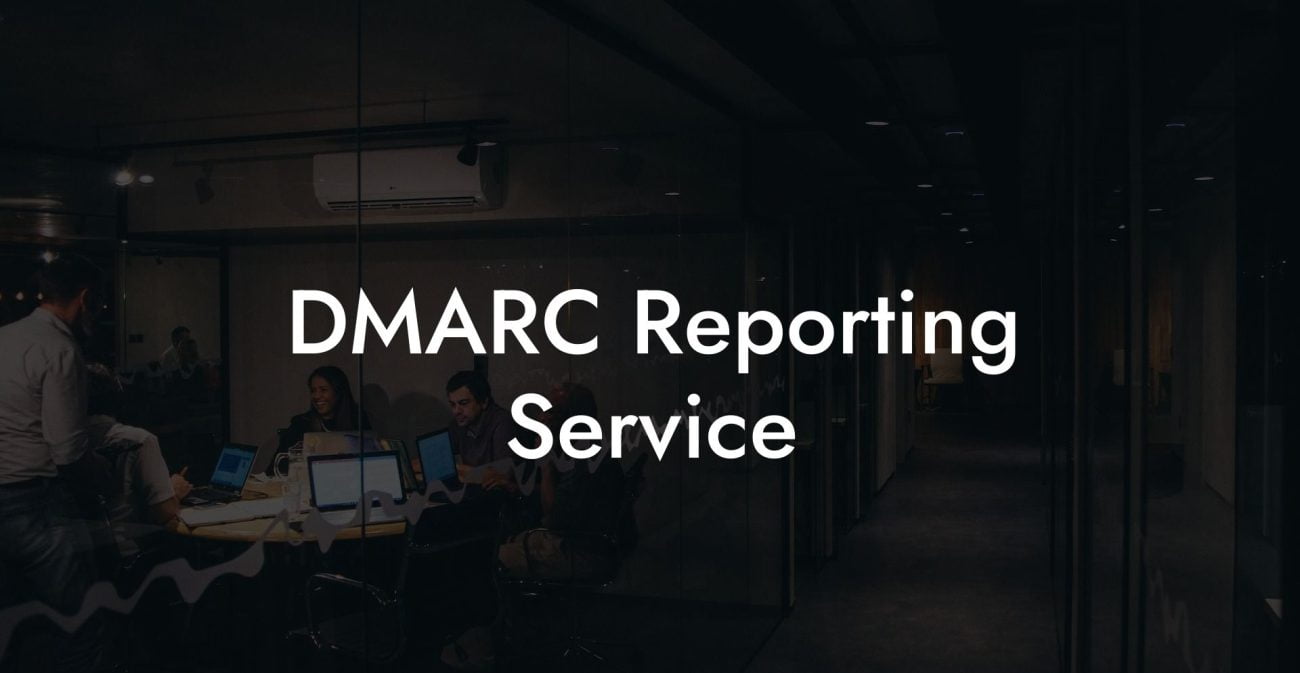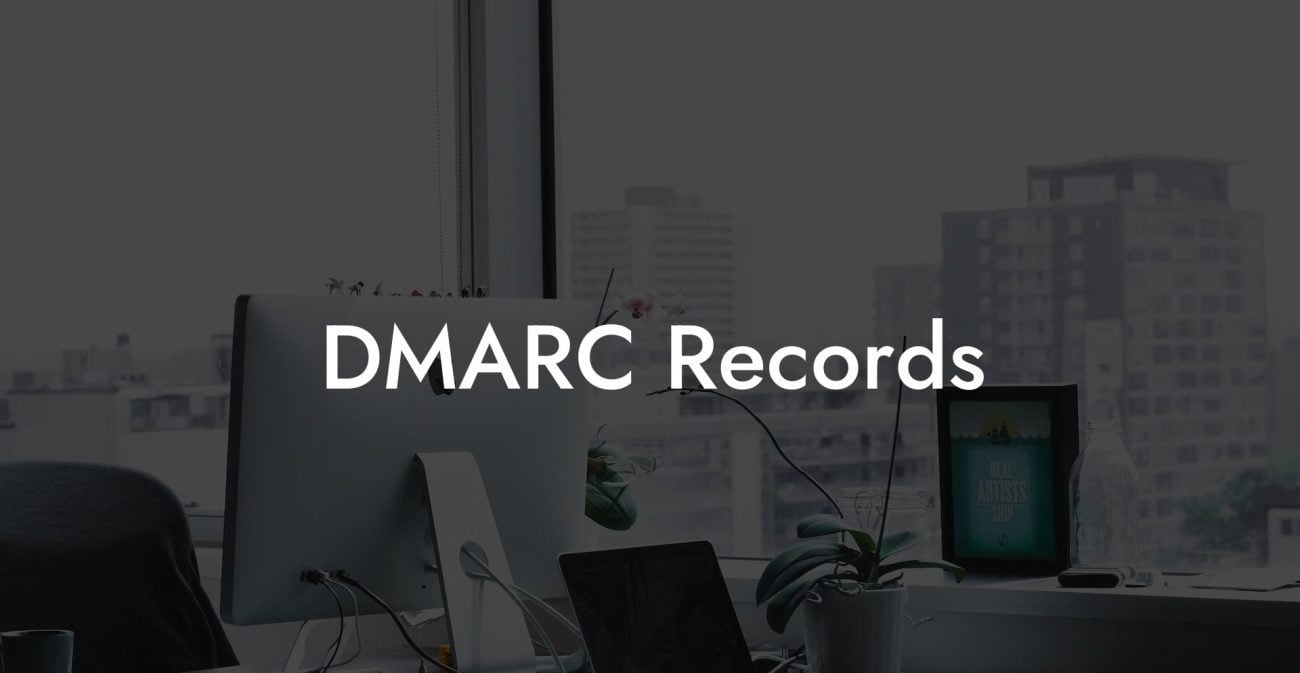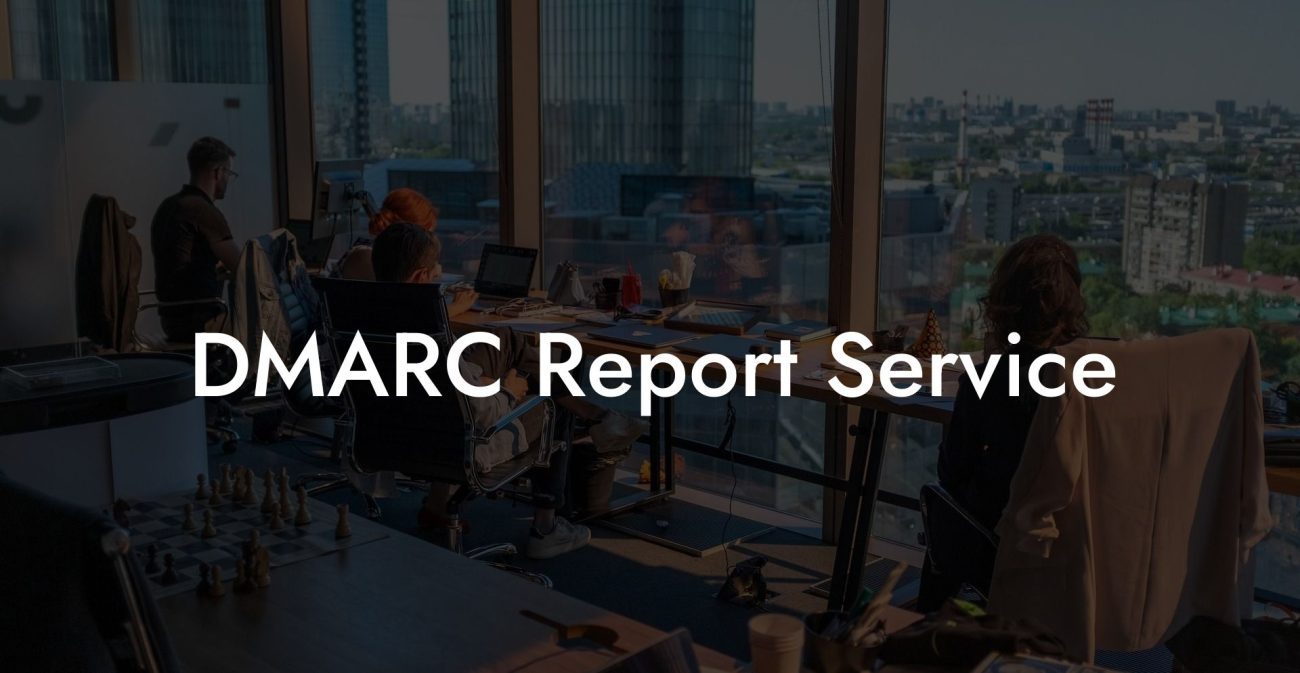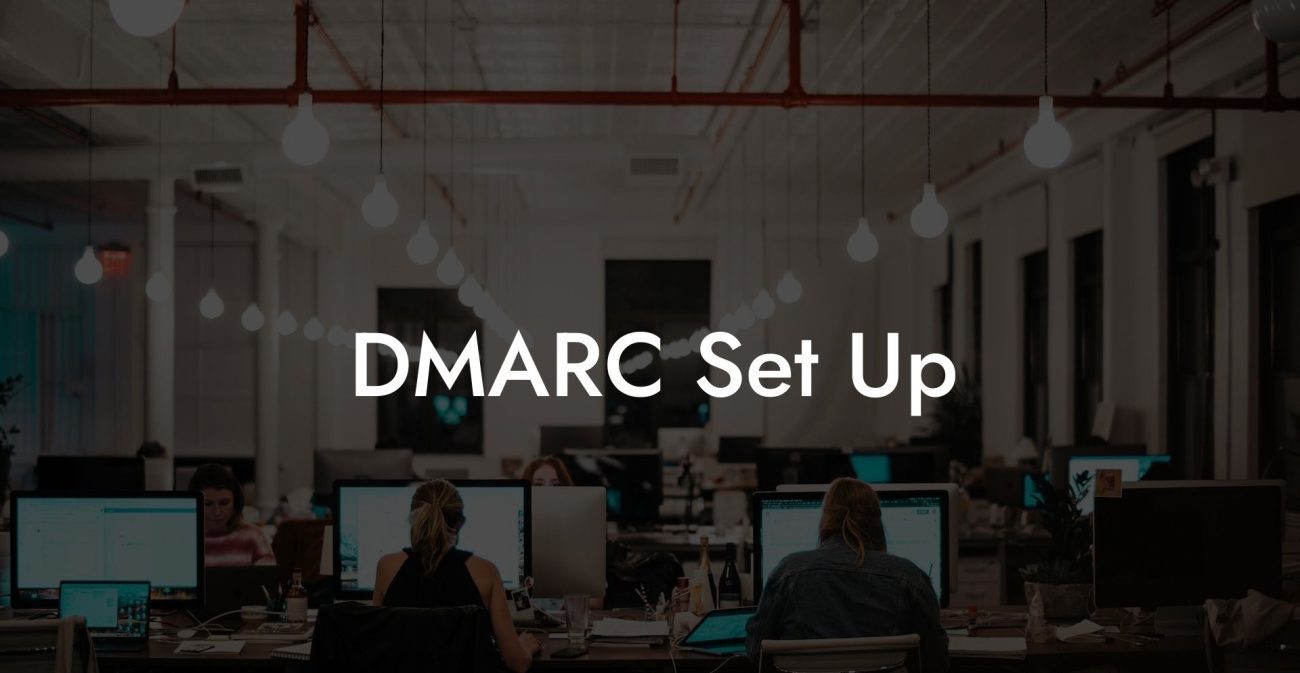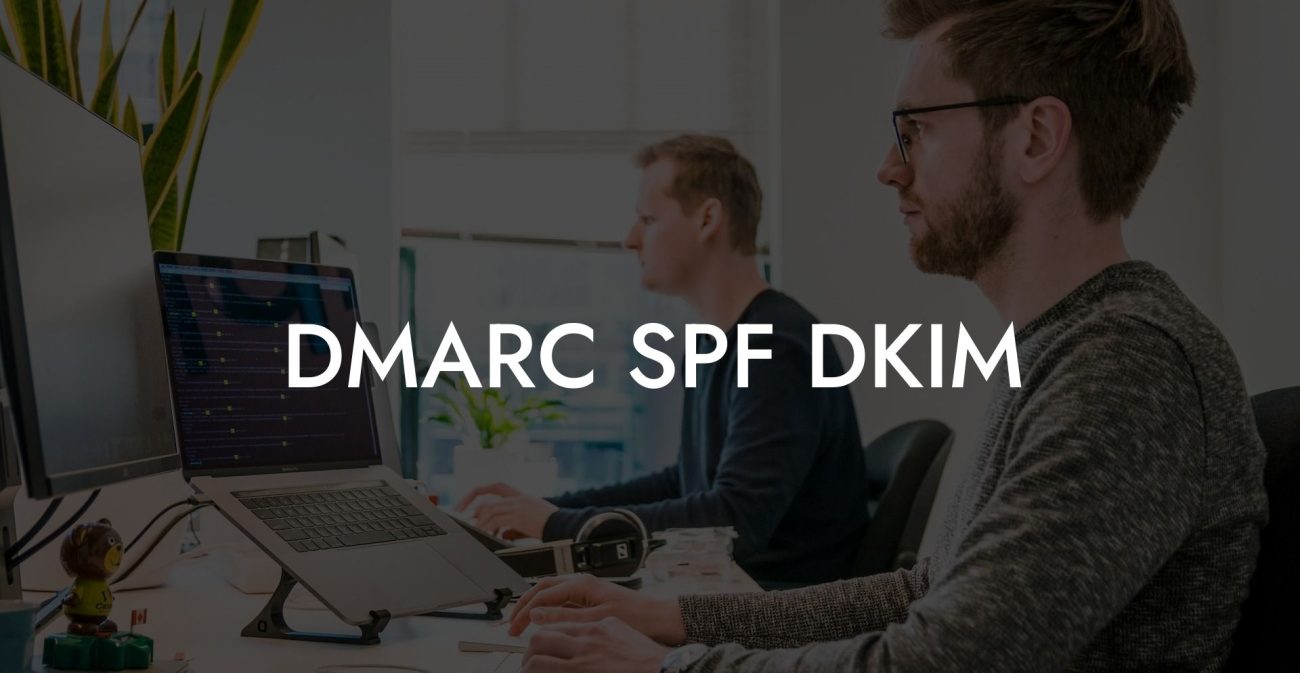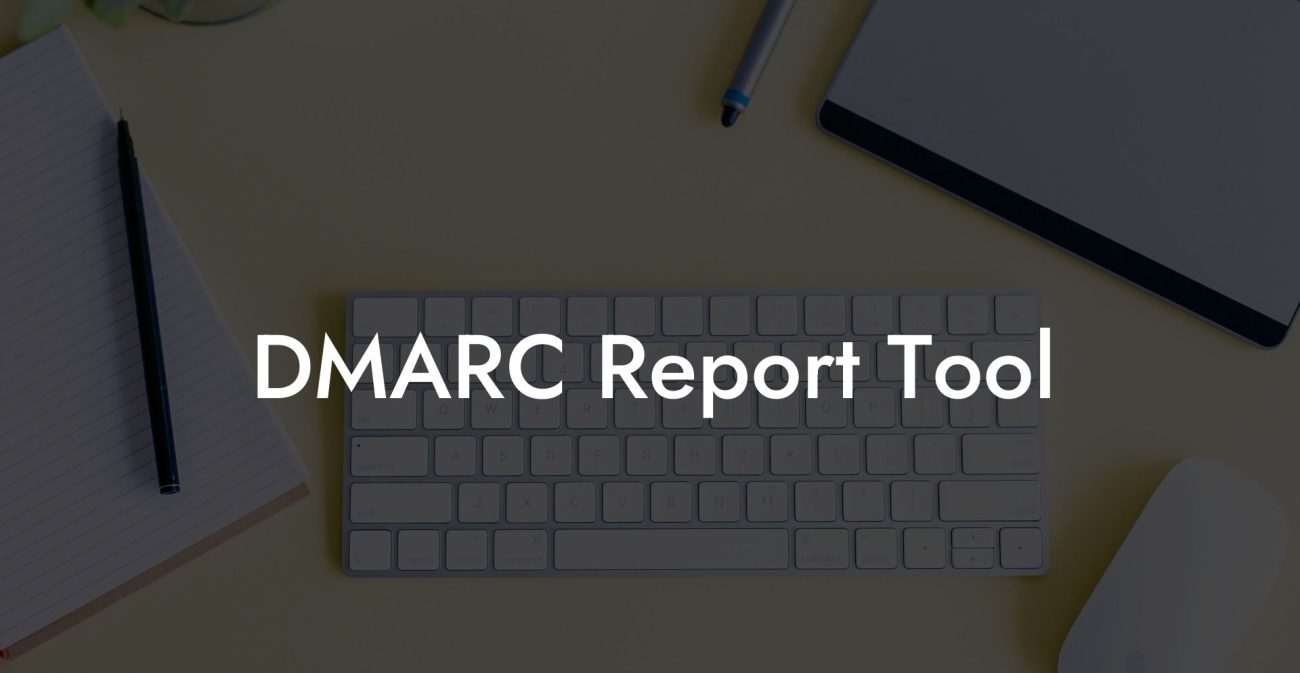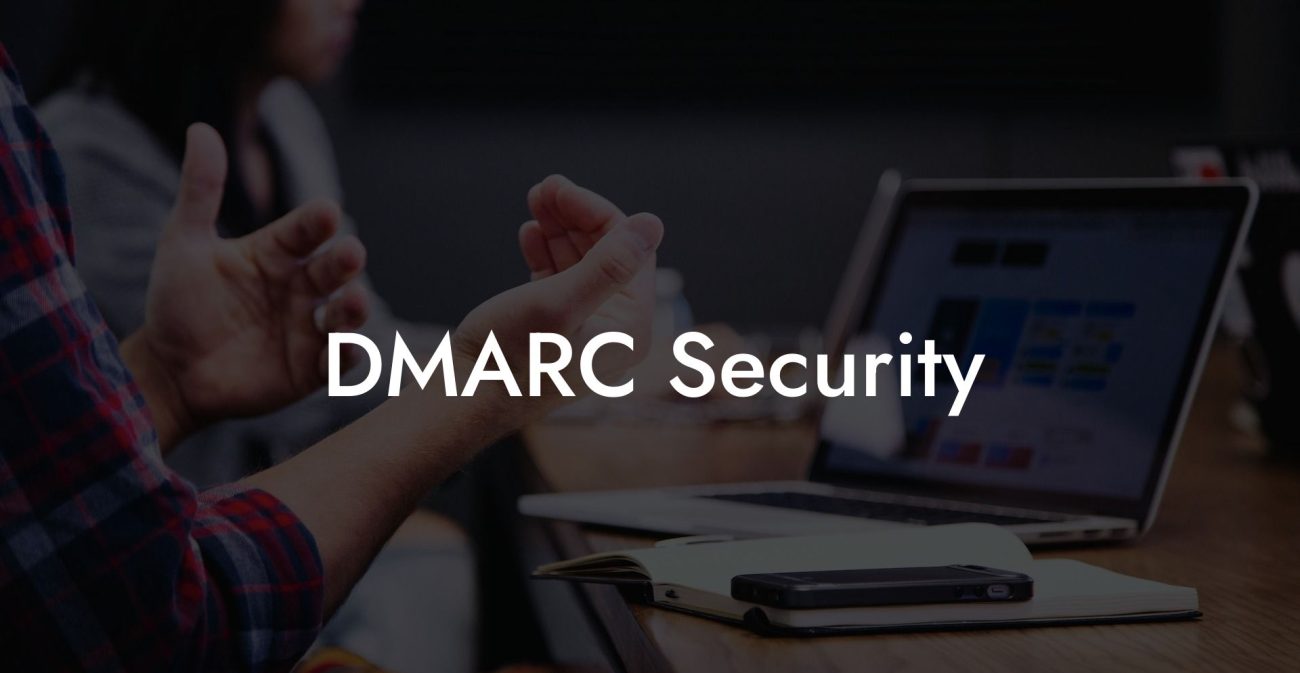In the world of cybersecurity and email protection, DMARC policy might sound like a complex term to grasp. However, understanding its importance and functionality is crucial in order to safeguard your digital presence. In this blog post, we will break down the concept of DMARC policy, exploring its purpose, how it works, and the benefits it provides. By the end of this comprehensive guide, you'll have a thorough understanding of DMARC policy and its role in preventing email fraud, phishing attacks, and ensuring email legitimacy.
What Is A DMARC Policy Table of Contents
What is DMARC Policy?
Domain-based Message Authentication, Reporting & Conformance (DMARC) is an email authentication protocol designed to enhance email security and protect against phishing, spoofing, and spam. DMARC policy builds upon other email authentication protocols, namely Sender Policy Framework (SPF) and DomainKeys Identified Mail (DKIM). By combining these protocols, DMARC ensures that recipients can trust the authenticity of incoming emails and reduces the likelihood of fraudulent emails reaching their inbox.
How DMARC Policy Works
Protect Your Data Today With a Secure Password Manager. Our Top Password Managers:
DMARC policy implementation is a process that involves creating and publishing a policy to the domain's DNS (Domain Name System) records. This published policy guides the receiving email server on how to handle emails that fail DMARC check.
DMARC uses the following authentication checks:
- SPF - Validates the sender's IP address to ensure it is authorized to send on behalf of the domain.
- DKIM - Utilizes cryptographic signatures to confirm the email has not been tampered with during transit.
Once these checks are complete, DMARC applies alignment checks, verifying that the SPF and DKIM domains match the From domain. Based on the success of these checks, DMARC ultimately classifies the email as either 'pass', 'fail', or 'neutral'.
Types of DMARC Policies
DMARC policies can be set to one of three policies:
- None - DMARC reporting is enabled, but emails that fail DMARC checks are still delivered to recipients' inboxes. This policy is useful while monitoring and implementing DMARC for the first time.
- Quarantine - Email messages that fail DMARC checks are sent to the recipient’s junk or spam folder. This provides some level of protection without completely blocking emails.
- Reject - DMARC fails are outright rejected and not delivered to the recipient. This policy is recommended when you are confident in your email authentication system.
Benefits of DMARC Policy
Implementing DMARC policy in your email system provides the following benefits:
- Securing Email Reputation - Prevents cybercriminals from using your domain to send spam, phishing emails, and other fraudulent messages, preserving your organization's email reputation.
- Enhanced Deliverability - Ensures that genuine emails pass through authentication checks and reach the recipients' inboxes as intended.
- Visibility and Reporting - Provides insights into email traffic and threats, allowing you to analyze and adjust your DMARC policy accordingly.
- Compliance Requirements - Helps organizations meet regulatory requirements for email security, such as GDPR and HIPAA.
What Is A DMARC Policy Example:
Consider a scenario where an attacker attempts to send an email spoofing your organization's domain, hoping to trick your customers into revealing sensitive data. With DMARC policy in place, the receiving email server performs SPF and DKIM checks, identifying the forged email as a fail. If you've set your DMARC policy to 'reject', the email is never delivered to the recipient's inbox, thwarting the phishing attempt and preventing harm to your reputation.
In conclusion, DMARC policy is an essential defense mechanism for securing your email infrastructure against cyber threats such as email impersonation, fraud, and phishing attacks. By implementing and understanding the importance of DMARC policy, you take a proactive stance towards protecting your organization, your customers, and your digital reputation. We hope this guide has enlightened you on the topic of DMARC policy and its significance in cybersecurity. Please feel free to share this article with others and explore more guides on Voice Phishing to stay informed and protected in this ever-evolving digital landscape.
Protect Your Data Today With a Secure Password Manager. Our Top Password Managers:

